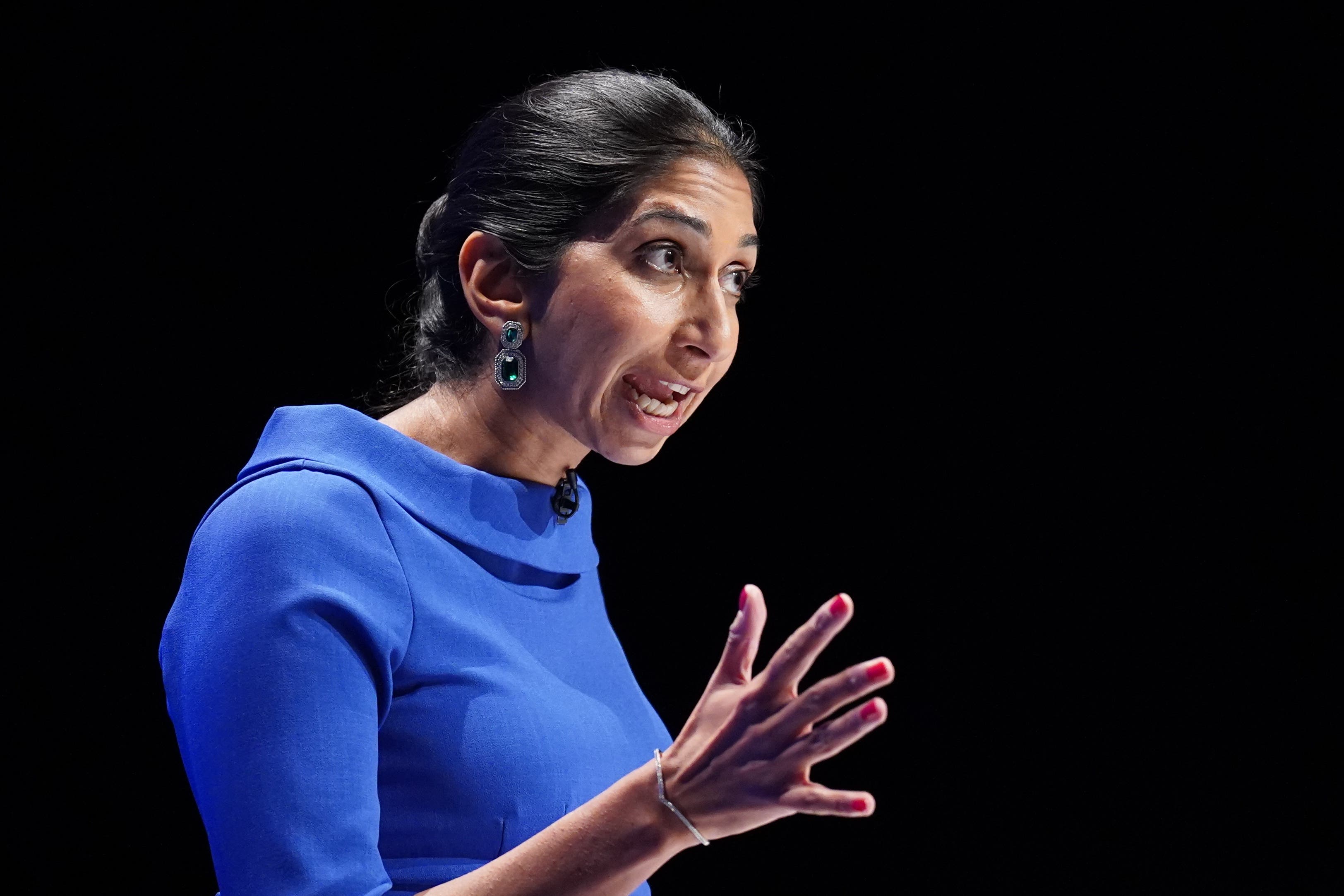No ‘politically correct’ distractions for officers, Braverman tells police chiefs
Her comments came after one of Britain’s senior police officers urged others to ‘stand tall’ and defend themselves against accusations of being woke.

Your support helps us to tell the story
From reproductive rights to climate change to Big Tech, The Independent is on the ground when the story is developing. Whether it's investigating the financials of Elon Musk's pro-Trump PAC or producing our latest documentary, 'The A Word', which shines a light on the American women fighting for reproductive rights, we know how important it is to parse out the facts from the messaging.
At such a critical moment in US history, we need reporters on the ground. Your donation allows us to keep sending journalists to speak to both sides of the story.
The Independent is trusted by Americans across the entire political spectrum. And unlike many other quality news outlets, we choose not to lock Americans out of our reporting and analysis with paywalls. We believe quality journalism should be available to everyone, paid for by those who can afford it.
Your support makes all the difference.The Home Secretary has told police chiefs she does not want officers to face “politically correct” distractions and they should focus on “common sense policing”.
Speaking at a conference in Westminster, Suella Braverman said police officers’ time is “precious” and the public want them fighting crime, not “debating gender on Twitter”.
Her comments came after one of Britain’s most senior police officers urged others to “stand tall” and defend themselves against accusations of being woke.
The chairman of the National Police Chiefs’ Council (NPCC), Martin Hewitt, said officers should defend their actions if they are effective in building public confidence.
Our police officers’ time is precious and the public want the police to be tackling crime, not debating gender on Twitter
Ms Braverman told the NPCC’s joint annual conference with the Association of Police and Crime Commissioners (APPC): “The way to ensure public confidence in the police is to focus on getting the basics right.
“What I call ‘common sense policing’. The kind of policing the law-abiding majority deserves and expects.
“No politically correct distractions, just good old-fashioned policing – with a relentless focus on making our streets, homes and transport networks safer.”
Praising chief constable of Greater Manchester Police Stephen Watson, saying he “rejects woke policing”, she added: “Our police officers’ time is precious and the public want the police to be tackling crime, not debating gender on Twitter.
“I have asked my officials to revisit the issue of non-crime hate incidents as a first step, as I want to be sure that we are allowing you to prioritise your time to deal with threats to people and their property.”
Mr Hewitt said: “Where we struggle to explain action we are taking or where it is not having a positive impact, we need to reconsider it.
“But if we are accused of being woke when taking action that we know is effective in building trust with people where that increased trust is needed, we must stand tall, champion and defend that action.
Calling something woke is an easy one-liner that will get you a bit of a headline
“We are all rightly sceptical of tokens or gimmicks. Meaningful action that works is what we need.”
Speaking to reporters after his speech, Mr Hewitt said: “Calling something woke is an easy one-liner that will get you a bit of a headline, and it’s great in social media, but I don’t think it’s particularly helpful.”
Meanwhile APCC chairman Marc Jones said he does not think the term “woke” is helpful.
“The term woke means different things to different people. And whenever you get a term that can be adapted in that way, it’s unhelpful.”
Ms Braverman sent a letter to police chiefs in September claiming that there is a perception that officers spend too much time on symbolic gestures.
She also said that initiatives on diversity and inclusion should not take precedence over common sense policing.
But Mr Hewitt, who leaves the chairman post in March, hit back at the comments on Wednesday and said: “Diversity and inclusion at work is important for us to deliver what we need to deliver in crime fighting in keeping the public safe, and it’s not a diversion. I disagree that it’s a diversion.”
“If we want to work with black communities, and have black communities feel that we are there for them, and that we are protecting them as much as we protect anyone else, and have people come forward when incidents happen so that we can investigate and prosecute, that is diversity and inclusion.
“I think we shouldn’t characterise that as being something that is separate to us delivering on our policing mission,” he added.
Mr Hewitt said initiatives on diversity and inclusion are part of common sense policing.
“Common sense is probably the first expression I would use about everything in policing.
“That is what we spend our entire time is trying to find common sense responses to difficult, messy, fast-moving situations. That’s the kind of people we are.
“I don’t agree with that phraseology, I don’t think it’s a fair comparison.”